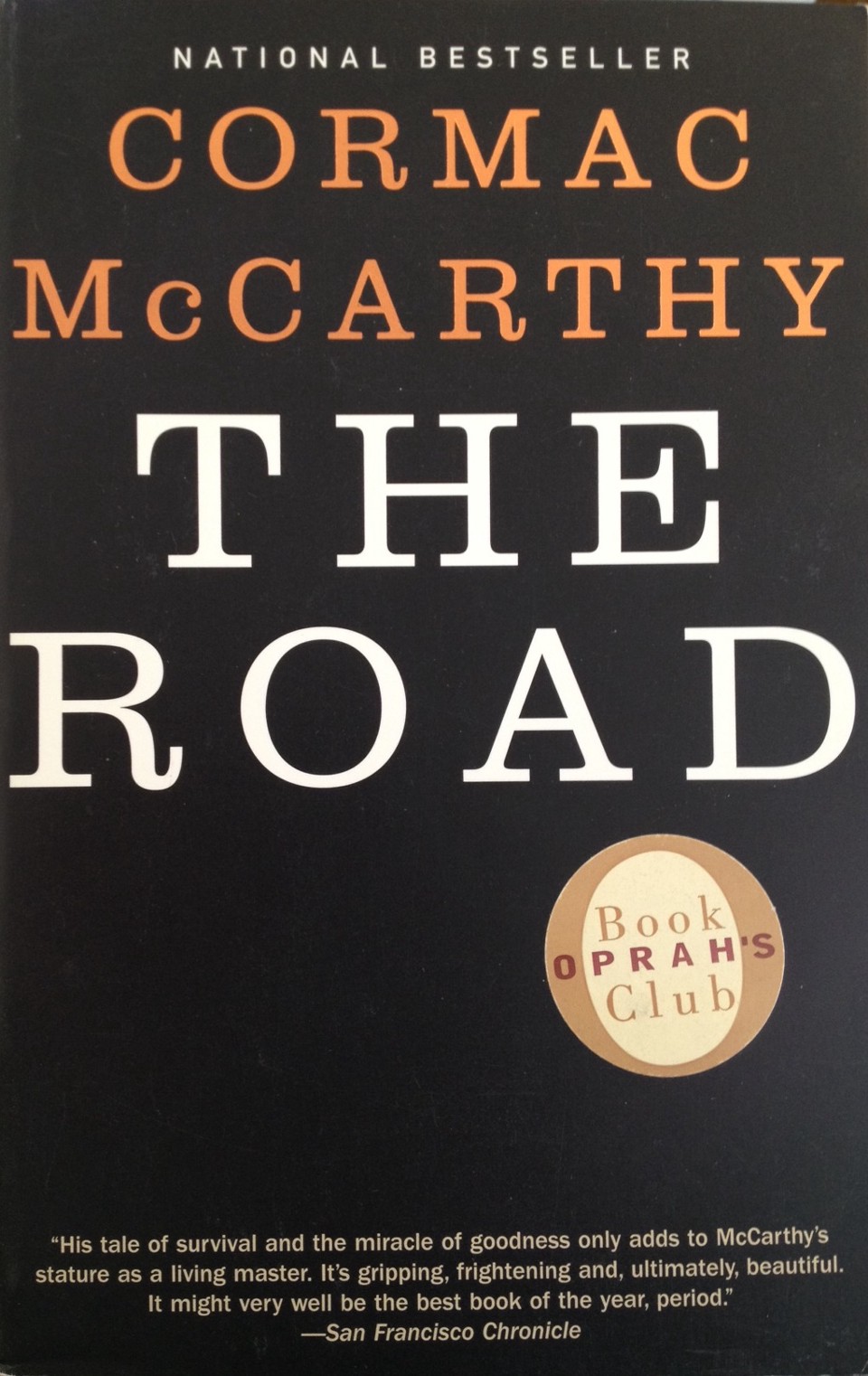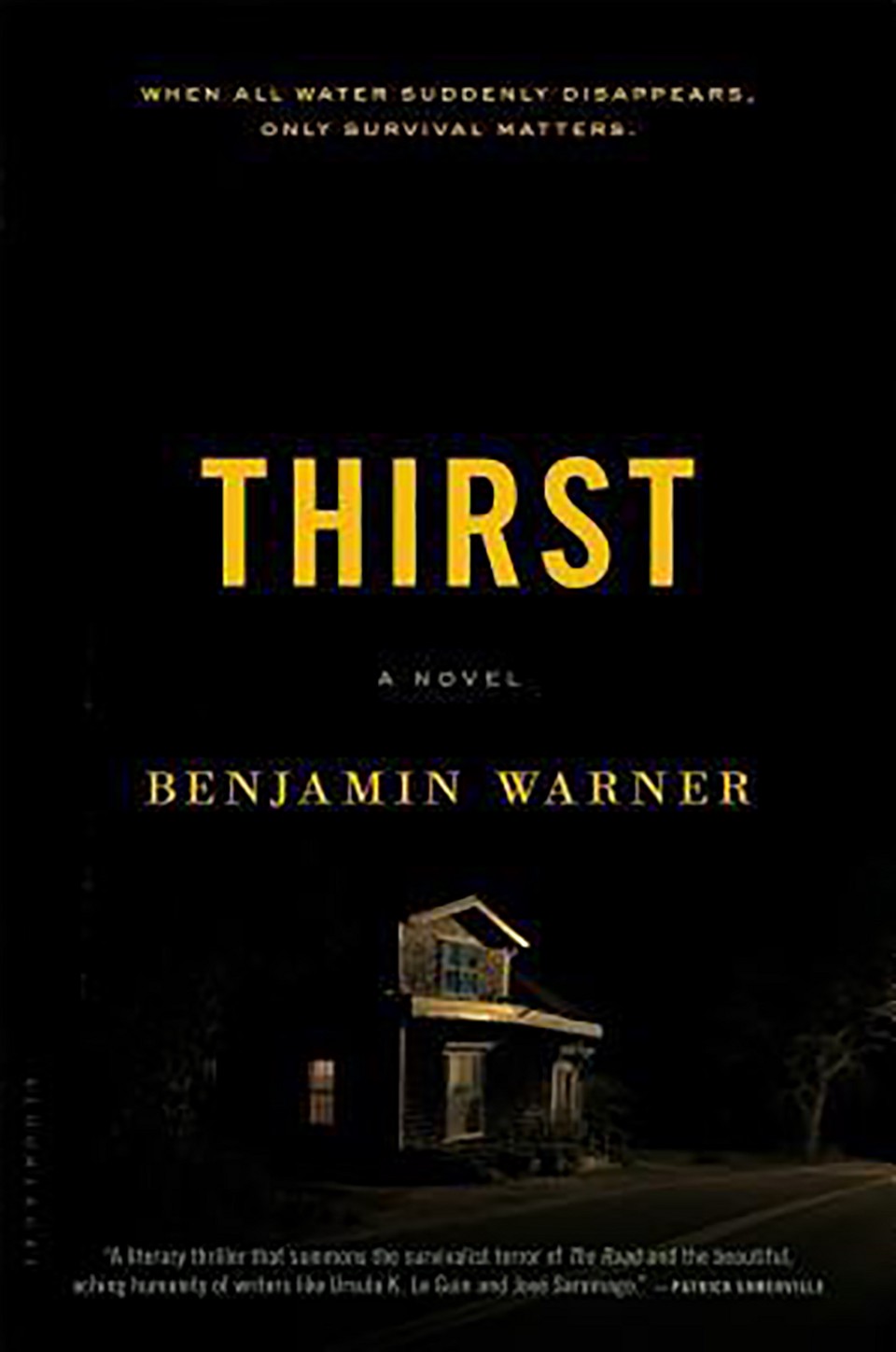A recent boom in “cli-fi” and “post-apocalit” lends an ethical urgency to the threats of global warming. Here’s why novels are still the best way to clarify our planet’s hopes and fears.
By Louise Fabiani
Inside cover of Mary Shelley’s Frankenstein, 1837. (Photo: Wikimedia Commons)
Change is the defining feature of daily life, something we celebrate, challenge, and sometimes try to reverse. The story of our species has been one long fight against unpredictability — that is, against change without pattern. Biology assisted first, with adaptations including genes for fat storage. For most other apparently random events, we developed cultural mechanisms to cope with, if not actually control them. Modern science is one result of this struggle to tame the destabilizing chaos of the natural world; everything from religious ritual to agriculture to central heating has been an attempt to impose order upon it. With the rise in American prosperity since the middle of the 20th century, however, the domestic elements of these achievements began to fall into disuse. Most of us now outsource basic household skills (not to mention animal husbandry and barn building), and are helpless without technology. Our privileged lives are built on unconscious trust in the mostly invisible others who make this illusion of domestic independence possible — the faith that they will never stop being there for us. And we have no back-ups in place should they let us down.
For humans in previous eras (who, it must be added, lived more in rural areas than they do today), contingency-planning was part of life. These days, the speed of certain kinds of change — technological, social — has compromised long-term thinking about everything else. Our stress-addled forebrains can only take so much “what if?”
Science fiction can help us prepare for radical change, just when things may be getting too comfortable.
To counteract this epidemic of short-term thinking, it might be a good idea for more of us to read science fiction, specifically the post-apocalyptic sub-genre: that is, fiction dealing with the aftermath of major societal collapse, whether due to a pandemic, nuclear fallout, or climate change.
Science fiction has long toyed with our conflicting desires for constancy and for progress. Mary Shelley���s Frankenstein, perhaps the first science-fiction novel, also arose in a time of climatic upheaval (1816 was famously “the Year Without a Summer”). Sci-fi, of course, appeals to a child-like sense of wonder; why else do we have a long childhood but to take time processing thousands of hypothetical situations and imagining the best ways to deal with them? All sorts of fiction can instruct or enlighten, but only science fiction comes closest to capturing the true outlandishness of mankind’s relationship with this world. The genre’s authors help us prepare for radical change, just when things may be getting too comfortable.
Science fiction traditionally draws on contemporary paranoia, as in the 1950s, when nuclear war was a new and still-unthinkable threat to all life on the planet, and communists became the designated scapegoats. A cottage industry of B-movies channeled these fears into shape-shifting aliens, or giant creatures — products of radiation mutation. These stories reflected the anxieties of the post-war period. For the past decade or so, we’ve been seeing a parallel rise in post-apocalyptic sci-fi — “post-apocalit,” if you will.
There’s no great mystery as to why. Hurricanes Katrina and Sandy literally brought home the realities of extreme weather events, global terrorism threats ratchet up public suspicions and fear of the other, while such latter-day dystopian specters as data-mining and 24/7 surveillance of citizens have boosted new anxieties. Science fiction is again pressing its finger to the pulse of the nation. Post-apocalit is back in vogue.

The Road. (Photo: Vintage Books)
Cormac McCarthy’s 2006 novel of familial love set against unspeakable horror, The Road, set the bar high for the latest wave. Most novels in the idiom, like McCarthy’s, feature minimal explanations as to how the hero(ine) became a survivor of Something Really Bad; writing that shifts between spare and devastatingly beautiful; and characters with little to no inner life — as if it has been bleached out of them by the very struggle to live. While most commercial post-apocalit is no fun-fest, high-literary examples tend to be especially grim. (If you want absurdity, or anything close to “light,” head over to the Russian-in-translation section.)
Jim Crace’s The Pesthouse (2007), TheDog Stars (2012) by Peter Heller (rare for its almost Buddhist serenity), Emily St. John Mandel’s Station Eleven and Eden Lepicki’s California (both 2014), and Gold Fame Citrus by Claire Vaye Watkins (2015) are noteworthy heirs to The Road. Margaret Atwood’s Maddaddam Trilogy — a cheeky diatribe against the perils of genetic engineering, among other evils — is often cited in this sub-genre (the first installment, Oryx and Crake, came out three years before McCarthy’s masterpiece). In the commercial camp, Paolo Bacigalupi’s The Water Knife is the highly accomplished, action-packed counterpart of Vaye Watkins’ more poetically envisioned (yet still-brutal) near future. Both warn about the consequences of current West Coast weather patterns and (mis)management of resources. Given very real water shortages, these books are trenchant and timely, and portend further titles within the sub-sub-genre (sometimes dubbed “cli-fi”). As climate change and human population growth continue alarmingly but incrementally, cli-fi and post-apocalit have the power to scare us into action.
We tend to think of climate change in incremental terms. Thirst, Benjamin Warner’s debut novel, asks us to ponder what would happen if things changed very abruptly instead.

Thirst. (Photo: Bloomsbury Press)
Eddie Gardner, a 30-something resident of a Baltimore suburb, gets caught in a nearly four-hour traffic jam on the highway one afternoon. He abandons his car and runs the rest of the eight miles home. Doing so, he passes a dry riverbed, to all appearances scorched by a fire of unknown origin. He makes it home but finds that the water and power have been cut. Eddie and his wife, who have no children, nearby relatives, or pets, are forced into consultation (if never true collaboration) with the strangers they have lived near for years. Here we have an example of post-apocalit’s power to disturb: After an off-screen Mysterious Event and the subsequent shutdown of daily life, a small group of isolated survivors seek to orient themselves in a new reality.
Upon the sudden disappearance of modern infrastructure and its mainstays — water, electricity, and cell phone service — Warner craftily builds layers of loss, not the least of which is peace of mind. No one seems to know anything about the origins of the crisis, which makes it that much more terrifying and lonely. The sense of their isolation is palpable.
Post-apocalit’s little secret is to wake us up while there’s still time. It is a thought experiment with a plot.
Thirst is primarily a cautionary tale: The characters’ lack of preparedness and poor survival smarts mirror those of society in general. Only one neighbor owns a generator. None has stored extra food, water, or batteries, as if they were all caught between trips to the supermarket. Warner lays their misery on thick — parched mouths, paranoia, dizziness, and sweatiness (but hardly a word on what must be overwhelming body odor).
Here, Warner bravely explores the psychology of people trapped by unforeseen events. Unfortunately, he neglects to render his characters in the vivid terms that would force us to care more deeply about their fate. Even Eddie makes for a bland protagonist — neither fully sympathetic nor enjoyably wicked, a strange mix of motives even for someone confused and overwhelmed. Furthermore, the multiple characters’ overly uniform insights, actions, morals, and quirks limit possible plot complications that could have taken the story into startling directions. There seems to be a stronger, scarier story lurking in Eddie’s plight, but it doesn’t emerge, to the novel’s detriment. After all, post-apocalit ought to give you a few nightmares.
Post-apocalit’s little secret is to wake us up while there’s still time. It is a thought experiment with a plot.
Abraham Lincoln allegedly remarked to Harriet Beecher Stowe, “So you’re the little woman that started this Great War!” Whether Uncle Tom’s Cabin actually did matters less than the valuable discussions it provoked.
In a much-cited 2013 paper published in Science, “Reading Literary Fiction Improves Theory of Mind,” social psychologists David Comer Kidd and Emanuele Castano argue that fiction (but only fiction that Kidd and Castano classify as “literary” ) increases empathy levels by allowing its readers to develop a “Theory of Mind” — that is, the ability to imagine another person’s inner life. This argument may help explain how The Road has had such an impact on popular culture, while pulpier cli-fi novels hardly register on social consciousness at all. Our most persuasive medium for shifting opinion on climate change seem to be a certain kind of novel, and a certain kind of documentary film — specifically, the kind of doomsaying we find in Al Gore’s An Inconvenient Truth. Truth is always stranger than fiction, but only fiction can frame life events as teachable moments.

||





